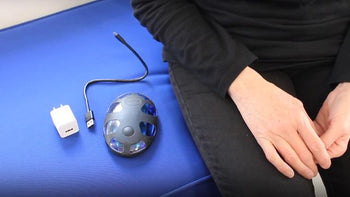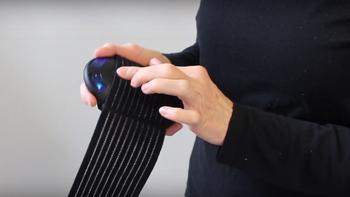Case Studies Supporting PEMF for Mechanistic Studies
A review of pulsed electromagnetic field (PEMF) mechanisms at a cellular level: a rationale for clinical use
Abstract
Delivery of health care demands evidence-based practice. Evidence-based practice helps to ensure that all facets of health care delivery are subject to a higher level of accountability. This helps to assure that the patient is receiving treatment that has some proof of efficacy. In recent years, physiotherapy practice has been influenced by a swell of research which, in many cases, supports current practice and, in some cases, influences change of practice. Despite the fact that there is a significant increase in the numbers of clinical trials and reviews in Physiotherapy, including research in electromagnetic modalities and mechanical modalities, it is not uncommon for a practitioner to feel at a loss to answer, “Exactly how does this treatment work?” This paper will review the mechanisms of action of the most common electromagnetic modalities and provide a rationale as to why “pulsed” fields seem to produce more significant effects compared with continuous applications. It will be shown that significant tissue healing effects, particularly with the modality PEMF, are likely the result of increased activity in non-excitable cells. The reputation of electromagnetic modalities has suffered in recent years, likely due to a lack of understanding of mechanisms for action. In the literature, the understanding in this area has made considerable progress over the past ten years. This review will explain the science at a cellular level and suggest the potential mechanisms for action for the modalities with specific focus on PEMF.

Alternative Medicine: Expanding Medical Horizons Bioelectromagnetics Applications in Medicine
Overview
Bioelectromagnetics (BEM) is the emerging science that studies how living organisms interact with electromagnetic (EM) fields. Electrical phenomena are found in all living organisms. Moreover, electrical currents exist in the body that are capable of producing magnetic fields that extend outside the body. Consequently, they can be influenced by external magnetic and EM fields as well. Changes in the body's natural fields may produce physical and behavioral changes. To understand how these field effects may occur, it is first useful to discuss some basic phenomena associated with EM fields.
In its simplest form, a magnetic field is a field of magnetic force extending out from a permanent magnet. Magnetic fields are produced by moving electrical currents. For example, when an electrical current flows in a wire, the movement of the electrons through the wire produces a magnetic field in the space around the wire.
Electromagnetic fields as first messenger in biological signaling: Application to calmodulin-dependent signaling in tissue repair
Abstract
Background: The transduction mechanism for non-thermal electromagnetic field (EMF) bioeffects has not been fully elucidated. This study proposes that an EMF can act as a first messenger in the calmodulin-dependent signaling pathways that orchestrate the release of cytokines and growth factors in normal cellular responses to physical and/or chemical insults.
Methods: Given knowledge of Ca2+ binding kinetics to calmodulin (CaM), an EMF signal having pulse duration or carrier period shorter than bound Ca2+ lifetime may be configured to accelerate binding, and be detectable above thermal noise. New EMF signals were configured to modulate calmodulin-dependent signaling and assessed for efficacy in cellular studies.
Results: Configured EMF signals modulated CaM-dependent enzyme kinetics, produced several-fold increases in key second messengers to include nitric oxide and cyclic guanosine monophosphate in chondrocyte and endothelial cultures and cyclic adenosine monophosphate in neuronal cultures. Calmodulin antagonists and downstream blockers annihilated these effects, providing strong support for the proposed mechanism.
Conclusions: Knowledge of the kinetics of Ca2+ binding to CaM, or for any ion binding specific to any signaling cascade, allows the use of an electrochemical model by which the ability of any EMF signal to modulate CaM-dependent signaling can be assessed a priori or a posteriori. Results are consistent with the proposed mechanism, and strongly support the Ca/CaM/NO pathway as a primary EMF transduction pathway.
General significance: The predictions of the proposed model open a host of significant possibilities for configuration of non-thermal EMF signals for clinical and wellness applications.

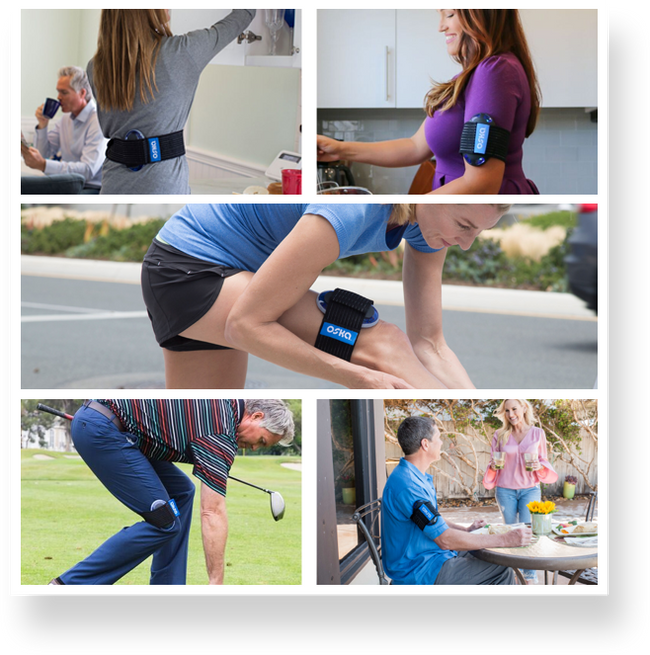
Evidence-Based Use of Pulsed Electromagnetic Field Therapy in Clinical Plastic Surgery
Abstract
Background: The initial development of pulsed electromagnetic field (PEMF) therapy and its evolution over the last century for use in clinical surgery has been slow, primarily because of lack of scientifically-derived, evidence- based knowledge of the mechanism of action.
Objective: Our objective was to review the major scientific breakthroughs and current understanding of the mechanism of action of PEMF therapy, providing clinicians with a sound basis for optimal use.
Methods: A literature review was conducted, including mechanism of action and biologic and clinical studies of PEMF. Using case illustrations, a holistic exposition on the clinical use of PEMF in plastic surgery was performed.
Results: PEMF therapy has been used successfully in the management of postsurgical pain and edema, the treatment of chronic wounds, and in facilitating vasodilatation and angiogenesis. Using scientific support, the authors present the currently accepted mechanism of action of PEMF therapy.
Conclusions: This review shows that plastic surgeons have at hand a powerful tool with no known side effects for the adjunctive, noninvasive, nonpharmacologic management of postoperative pain and edema. Given the recent rapid advances in development of portable and economical PEMF devices, what has been of most significance to the plastic surgeon is the laboratory and clinical confirmation of decreased pain and swelling following injury or surgery.
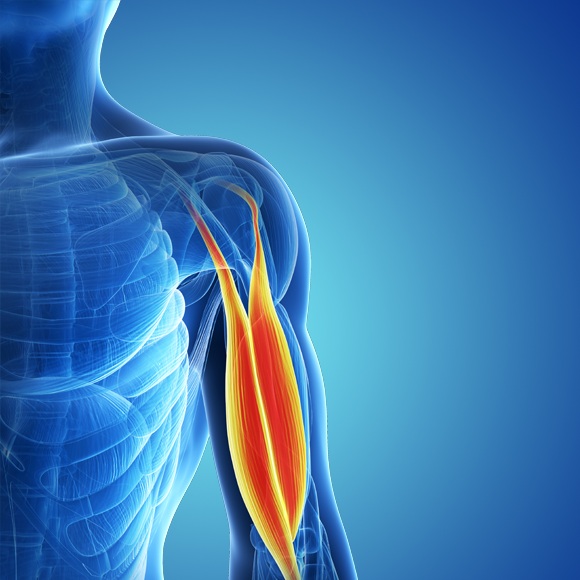
Magnetic Resonance: Impact on Cell Function
The use of magnetism in medicine is recorded in the history of most civilizations. The first usage is noted in Chinese writings (approximately 2000 B.C.), referencing the use of magnetism in conjunction with acupuncture. Cleopatra is said to have worn a lodestone on her forehead to prevent aging.
Long ago, the Earth was surrounded by a much stronger magnetic field than it is today. Scientists have observed a decline in its strength over the past 155 years. They have also discovered, from studying ocean floor samples, that higher vertebrates have died out due to the decline. The effects of this decline on human health were discovered when astronauts experienced bone calcium loss and muscle cramps as a result of being distant from the Earth's magnetic field for an extended time. When artificial magnetic fields were placed in the space vessels, the astronauts maintained their health.
Healthy cells generally have transmembrane potentials of approximately 70 millivolts. These potentials are considerably lower in aged and diseased cells due to the alterations of structure, making them unable to function normally. Restoration of the original potentials enables aged or damaged subcellular structure to regain their function.
In the late 1950s, magnetic field deficiency syndrome was identified in Japan. It resembles chronic fatigue syndrome, with symptoms including fatigue, dizziness, general aches and pains, and frequent headaches. These symptoms were alleviated by the external application of a magnetic field to the human body. Even today, athletes use metal, magnets and electric shocks in various ways to enhance their performance and alleviate pain. Golfers wear copper bracelets, claiming it stops arthritis from hindering their game. Golfers and baseball pitchers tape magnets to their arms to boost blood flow and ameliorate pain. During breaks in a game, athletes often relieve their soreness with electric shocks. Electrostimulators send helpful charges to the muscles and joints.

The multipotent action of electromagnetic field
Abstract
The use of electromagnetic field in the treatment of diseases has already been known for centuries. Low hazard, wide applicability, good clinical effect and the relatively low cost enable the electromagnetic field therapy to be widely used. The biological effect of the electromagnetic field is based on inter alia, analgesic, anti-inflammatory, osteogenetic and regenerative actions, which are associated with the changes in cellular signal transmission, action on biological membranes, ion transport processes, protein synthesis, cell proliferation and apoptosis. In addition, the electromagnetic field increases quantity of collagen content elevating its density and a more regular arrangement. Furthermore, it induces the activation of glutathione peroxidase and intensification of the process of erythropoiesis leading to better use of oxygen in the tissues around the wound. The electromagnetic field is used in rehabilitation of patients with diseases of skeletal, nervous and respiratory systems. Moreover, electromagnetic field may be used in the course of most inflammatory diseases and in the case of concomitant pain. The objective of this paper is to present the actual state of knowledge on selected applications of electromagnetic field in the biomedical treatment area.
Case Study Reference Source:
-
1. A review of pulsed electromagnetic field (PEMF) mechanisms at a cellular level: a rationale for clinical use (Authors: Brett Wade)
2. Alternative Medicine: Expanding Medical Horizons, Bioelectromagnetics Applications in Medicine (Authors: "Beverly Rubik, Ph.D.", "Robert O. Becker, M.D.", "Robert G. Flower, M.S.", "Carlton F. Hazlewood, Ph.D.", "Abraham R. Liboff, Ph.D.", "Jan Walleczek, Ph.D.")
3. Electromagnetic fields as first messenger in biological signaling: Application to calmodulin-dependent signaling in tissue repair (Authors: Arthur Pilla, Robert Fitzsimmons, David Muehsam, June Wu, Christine Rohde, Diana Casper)
4. Evidence-Based Use of Pulsed Electromagnetic Field Therapy in Clinical Plastic Surgery (Authors: "Berish Strauch, MD", "Charles Herman, MD", "Richard Dabb, MD", "Louis J. Ignarro, PhD" and "Arthur A. Pilla, PhD")
5. Magnetic Resonance: Impact on Cell Function (Authors: Jerry Jacobson, PhD, DMD, IOM)
6. The multipotent action of electromagnetic field (Authors: Natalia Cichon, Alicja K. Olejnik, Elzbieta Miller & Joanna Saluk)
Why Oska Pulse?
-
Portable
Oska Pulse is a portable, wearable device that targets back pain at its source.
-
Doctor Recommended
Clinically tested and doctor recommended, it stimulates the muscle and tissue in the back area to encourage repair and relieve aches and pains.
-
Drug Free
Drug-free, non-invasive and with no known side-effects Oska Pulse utilizes Pulsed Electromagnetic Field technology – or PEMF – To enable the individual to start living with less pain.
-
Easy To Use
One button operation.
Oska Pulse is FSA and HSA reimbursable.
It can be used complementary to other treatments as part of your overall management plan or as a stand-alone therapy to soothe muscles and relieve aches and pains.

The Technology Behind Oska Pulse
You’re probably asking yourself – why have I never heard of Pulsed Electromagnetic Field therapy (PEMF)? Although not widely known, PEMF technology has been utilized in the medical community for over 60 years. Electromedicine is slowly making a resurgence in the United States and Oska Pulse is unique in that it is one of the only portable and affordable PEMF devices on the market.
PEMF uses low level electromagnetic waves that target the source of the various types of pain encouraging recovery at a cellular level, speeding up the natural healing processes of your body.
How It Works?
Oska Pulse emits a continuous pulsing field that passes through all tissue types. These fields will also pass through clothing, so Oska Pulse does not have to be directly in contact with your skin. Imagine a pebble being thrown into a lake – small waves radiate from the center until they disappear into the distance.
Similarly, small electromagnetic waves produced by Oska Pulse travel to the pain site to soothe and relieve.
-
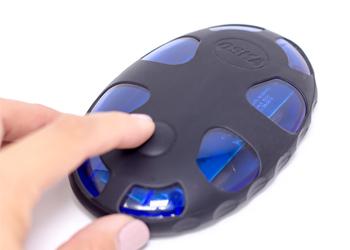
Turn on Oska Pulse
-

Place on or near the area of pain
-

Make Oska Pulse part of your daily routine
How Is Oska Pulse Used?
Oska Pulse does not need to make direct contact with your skin or even be on your body. The field has a diameter of 22”, so Oska Pulse can be positioned near the area of pain and still be effective. Within 8-10” of the pain is optimal. Oska Pulse offers the flexibility of treatment as you go about your daily activities. Use it at home, on-the-go or in partnership with your doctor.
Oska Pulse is easy to use. The device is preprogrammed and requires only one button press to begin use. It can be placed in your pocket or purse depending on where you need pain relief. With the included compression wrap, Oska Pulse can also be worn over or under clothing around the leg, arm or waist. Oska Pulse is powered by a rechargeable battery, just like your cell phone, that is simply charged using the included cable. A full charge takes just 3 hours and will then last for approximately 10 hours of use.
Looking Forward
In most people, back pain will subside within 6 weeks. Every back is unique. And in some cases ongoing pain management is a reality, especially with aging. With each case of recurrent or ongoing back pain it is important to find the treatment – or combinations of treatments – that work for the individual. When this point is reached, most people are able to continue to lead a full active life at work and at play. This is where Oksa Pulse may be able to help.
Oska Pulse is a medical pain relief device.
100% Drug Free | Doctor Recommended | FSA & HSA Reimbursable





